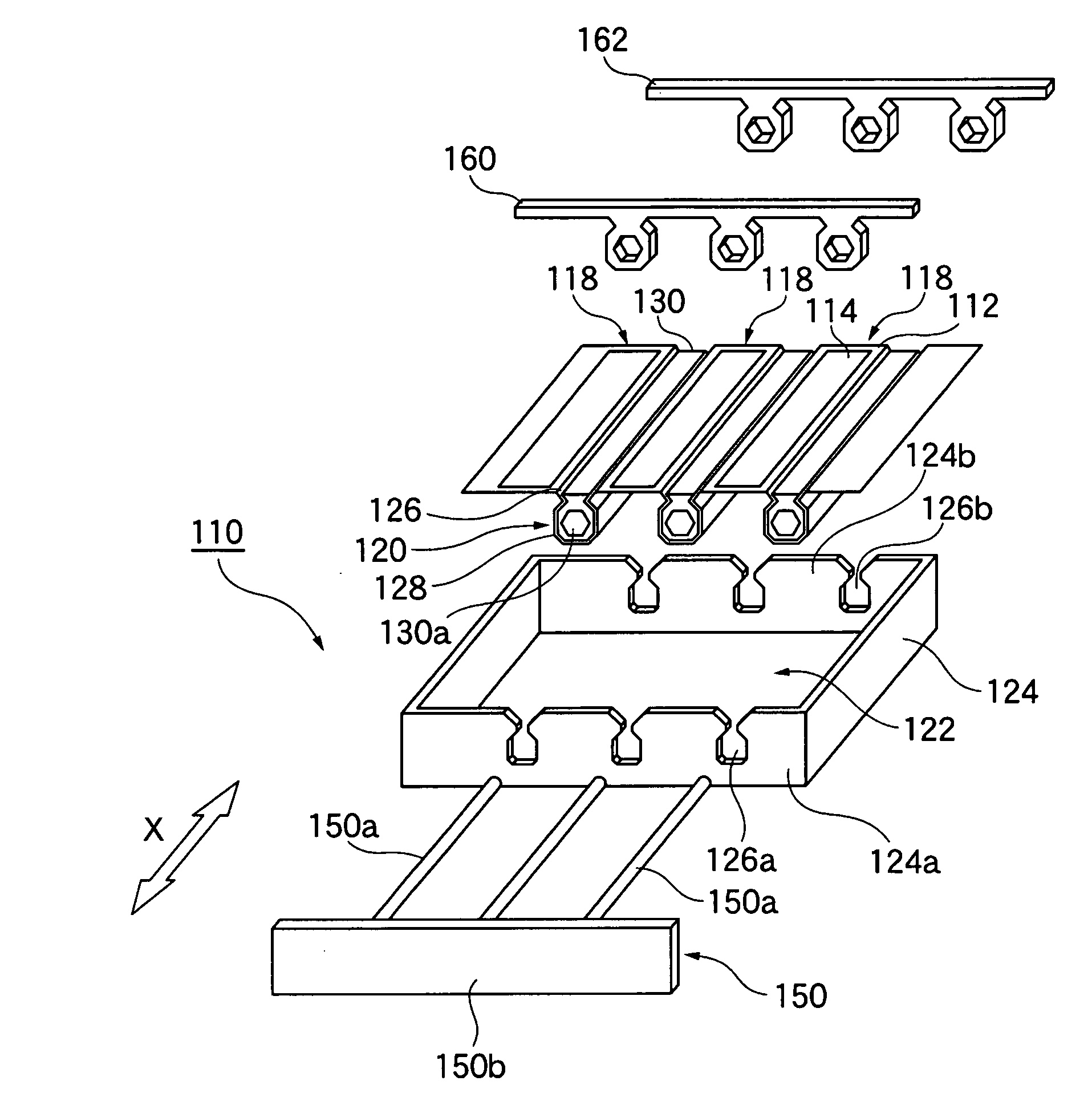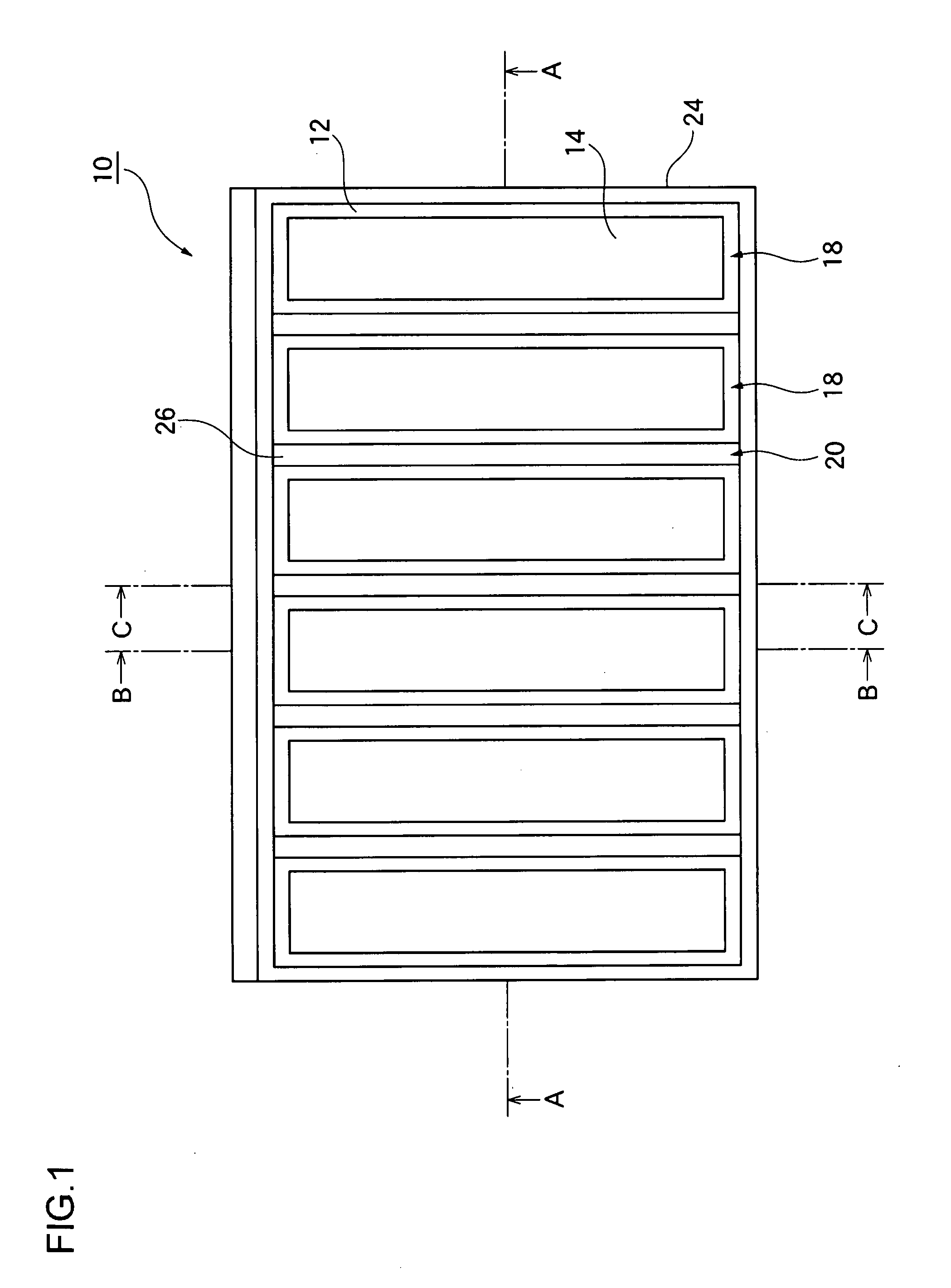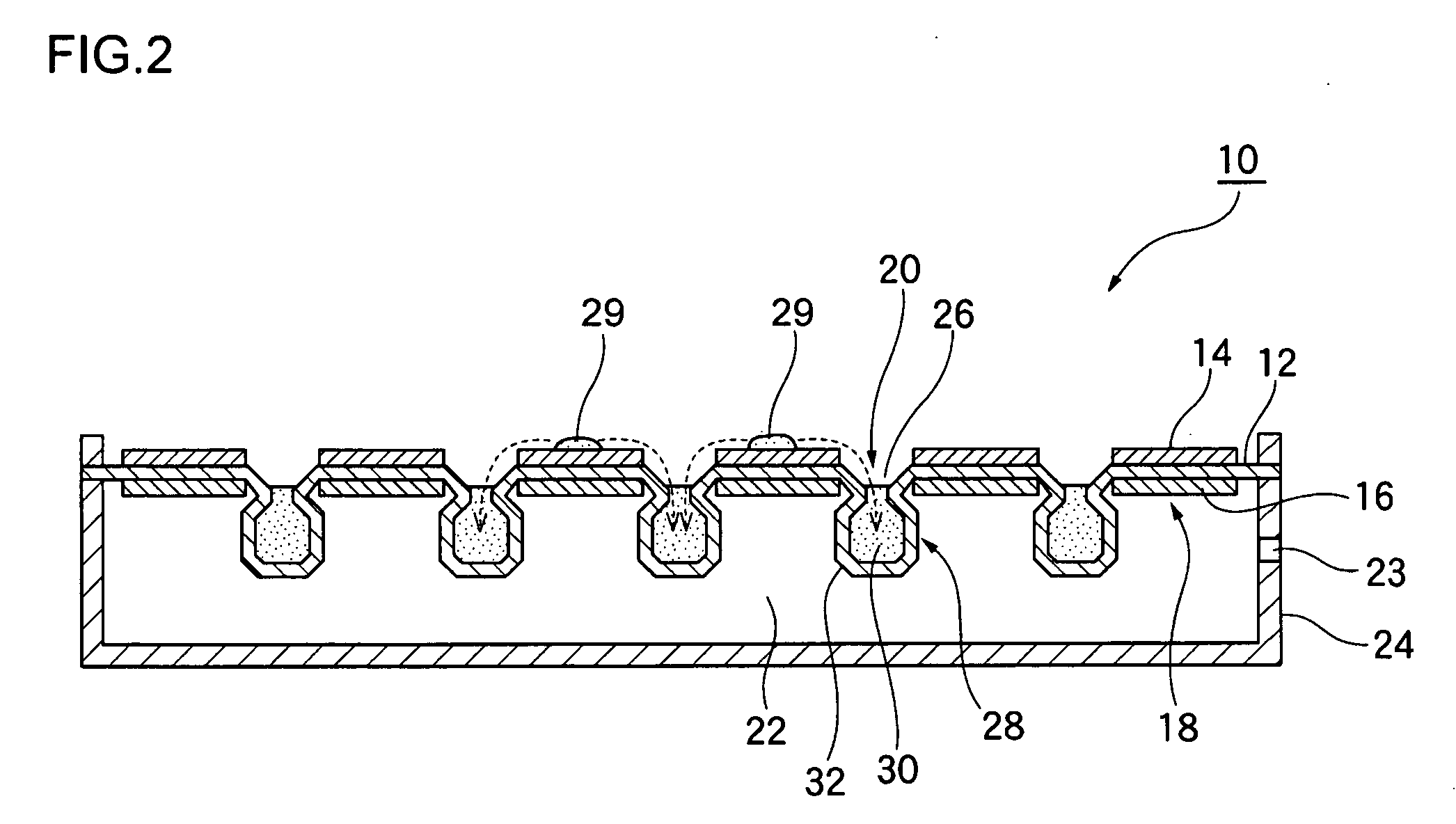Fuel cell module
a fuel cell module and module technology, applied in the direction of fuel cells, solid electrolyte fuel cells, electrical equipment, etc., can solve the problems of reducing output, requiring a large amount of extra space for conventional fuel cells, and reducing output, so as to achieve stable output of the fuel cell module
- Summary
- Abstract
- Description
- Claims
- Application Information
AI Technical Summary
Benefits of technology
Problems solved by technology
Method used
Image
Examples
first embodiment
[0037]FIG. 1 is a top view schematically illustrating a structure of a fuel cell module according to a first embodiment of the present invention. FIG. 2 is a cross-sectional view taken along the line A-A of the fuel cell module of FIG. 1.
[0038]As illustrated in FIG. 1 and FIG. 2, a fuel cell module 10 according to the first embodiment includes a plurality of cell units 18, each of which comprises a solid polymer electrolyte membrane 12, a cathode 14 disposed on one face of the electrolyte membrane 12, and an anode 16 disposed on the other face thereof, water reservoirs 20 for collecting water 29 produced at the cathodes 14, and a fuel chamber 22 disposed on the anode side for storing a fuel to be supplied to the anodes 16. Note that the cathodes 14 and the anodes 16 are each comprised of a catalyst layer, a gas diffusion layer, and a current collector (all not shown) which are integrally structured together.
[0039]The fuel chamber 22 is formed by the electrolyte membrane 12 of cell u...
second embodiment
[0055]A fuel cell module according to a second embodiment of the present invention differs from the fuel cell module 10 of the first embodiment in that the opening of a water reservoir is formed in the cathode of a cell unit. FIG. 10 is a top view schematically illustrating a structure of a fuel cell module according to the second embodiment. FIG. 11 is a cross-sectional view taken along the line A′-A′ of the fuel cell module of FIG. 10.
[0056]As illustrated in FIG. 10 and FIG. 11, a fuel cell module 50 according to this second embodiment includes a plurality of cell units 58, each of which comprises a solid polymer electrolyte membrane 52, a cathode 54 disposed on one face of the electrolyte membrane 52 and an anode 56 disposed on the other face thereof, water reservoirs 60 for collecting water 69 produced at the cathodes 54, and a fuel chamber 62 disposed on the anode side for storing a fuel to be supplied to the anodes 56. Note that the cathodes 54 and the anodes 56 are each compr...
third embodiment
[0060]When power generation by a fuel cell module lasts a long time, there may be cases where water is produced at the cathodes in excess of the water retention capacity of the water-absorbing member thereof. To solve this problem, a fuel cell module 110 according to a third embodiment of the present invention is so configured that at least one part of the water-absorbing member is detachable from the water reservoir.
[0061]FIG. 7 is an exploded perspective view of a fuel cell module according to the third embodiment. The fuel cell module 110 includes a plurality of cell units 118, each of which comprises a solid polymer electrolyte membrane 112, a cathode 114 disposed on one face of the electrolyte membrane 112, and an anode (not shown) disposed on the other face thereof, water reservoirs 120 for collecting water produced at the cathodes 114, and a fuel chamber 122 disposed on an anode side for storing a fuel to be supplied to the anodes.
[0062]The water reservoir 120 includes an ope...
PUM
| Property | Measurement | Unit |
|---|---|---|
| temperatures | aaaaa | aaaaa |
| energy conversion efficiency | aaaaa | aaaaa |
| size | aaaaa | aaaaa |
Abstract
Description
Claims
Application Information
 Login to View More
Login to View More - R&D
- Intellectual Property
- Life Sciences
- Materials
- Tech Scout
- Unparalleled Data Quality
- Higher Quality Content
- 60% Fewer Hallucinations
Browse by: Latest US Patents, China's latest patents, Technical Efficacy Thesaurus, Application Domain, Technology Topic, Popular Technical Reports.
© 2025 PatSnap. All rights reserved.Legal|Privacy policy|Modern Slavery Act Transparency Statement|Sitemap|About US| Contact US: help@patsnap.com



